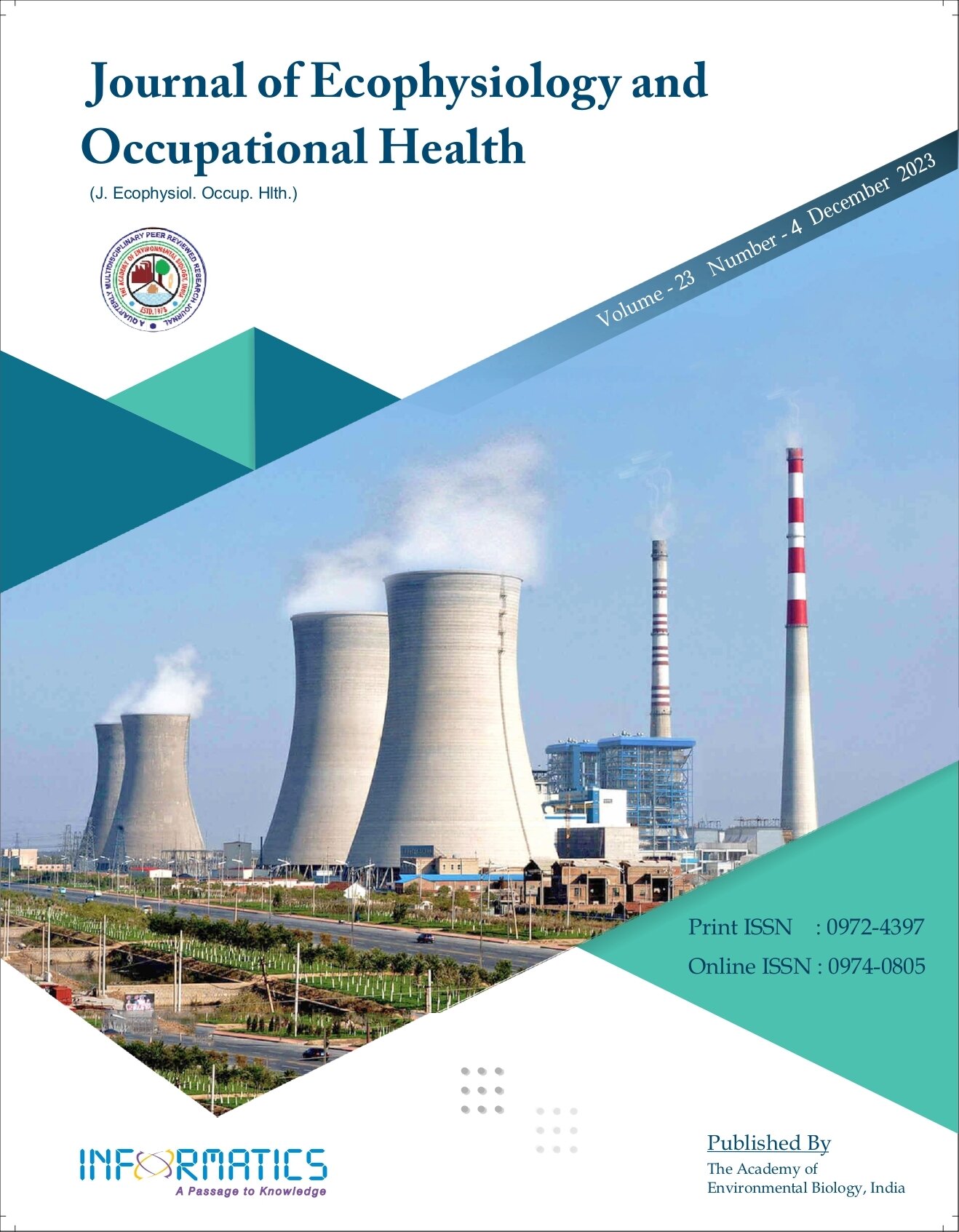Knowledge of Primary School Teachers Regarding First Aid for Selected Common Injuries in Selected Schools in Bangalore
DOI:
https://doi.org/10.18311/jeoh/2023/33601Keywords:
First Aid, Knowledge, Primary School, TeachersAbstract
Every parent will take various measures and actions to keep their child safe and protect them from injury. Especially when they are not around them, like in schools and daycare. Children are spending more time at school; thus, teachers are responsible for their health. School teachers should know that first aid and primary school children come under an endangered group, which means that they are more prone to injuries. The study’s objective was to reveal primary school teachers’ knowledge regarding first aid in selected Bangalore schools and determine the efficiency of a structured teaching program on knowledge regarding first aid. A pre-experimental pre–post-test design was preferred for this study. The sample consisted of 52 primary school teachers selected using purposive sampling. The score was acquired through self-administered questionnaires using baseline Performa and questionnaires to measure the primary school teachers’ knowledge in selected schools in Bangalore, India. Among the 52 participants, 48.1% have poor knowledge, and 51.9% have moderate knowledge. All 100% of the subjects were female teachers, with a pre-test mean knowledge score of 14.52% and a post-test score of 22.63%. The obtained p-value of the mean difference between the pre and post-test is less than 0.001. It is concluded that there is a high relationship between primary and post-test knowledge scores of primary school teachers concerning first aid. The teacher’s negligence of the students and their failure to look after the child during school hours is the main reason for the cause of accidents at school. Proper first aid knowledge is important for those teachers to prevent further complications of accidents. It is concluded that a structured teaching programme among those school teachers will help improve their awareness and competency in the prevention and management of First aid.
Downloads
Metrics
Downloads
Published
How to Cite
Issue
Section
License
Copyright (c) 2023 S. Saranya, Lalhruaitluangi ., Premika Prathan

This work is licensed under a Creative Commons Attribution 4.0 International License.
Accepted 2023-11-29
Published 2023-12-15
References
Kaur N, Kaur S, Kaur M. A descriptive study to assess the level of knowledge regarding first aid management among school teachers in selected schools of district Mohali, Punjab. J Health Med Inform. 2017; 8:288. https://doi. org/10.4172/2157-7420.1000288 DOI: https://doi.org/10.4172/2157-7420.1000288
Al-Robaiaay YK. Knowledge of primary school teachers regarding first aid in Baghdad Al-Rusafa. Al-Kindy College Medical Journal. 2013; 9(1):54-9.
Branche C, Ozanne-Smith J, Oyebite K, Hyder AA. World report on child injury prevention; 2008
Muneeswari B. A study to assess the effectiveness of planned health teaching programme using a child-to-child approach on knowledge of selected first aid measures among school children in selected schools at Dharapuram in Tamil Nadu, India. Glob J Med Public Health. 2014; 3(1):18.
Available at: http://www.ruaneattorneys.com/child-injurylawyers/ school-injuries/
Elsoud MS, Ahmed HA, Ahmed AM, Farg HK. Assessment knowledge of primary schools teachers about first aid at Ismailia City. IOSR Journal of Nursing and Health Science. 2018; 7:79-85.
Al-Samghan AS, Al-Shahrani FM, Al-Shahrani FH. Primary school teachers’ knowledge about first-aid. Med J Cairo Univ. 2015; 83(1):541-7.
Kumar R, Muninarayanappa NV, Sharma S, Pathania S, Kaur R, Sharma S. Knowledge of primary school teachers on first aid management of minor accidents among children at Ambala. Religion. 2015; 2:5.
Masih S, Sharma RK, Kumar A. Knowledge and practice of primary school teachers about first aid management of selected minor injuries among children. Nt J Med Sci Public Health. 2014; 4(4). Https://doi.org/10.4103/2230- 8598.144114 DOI: https://doi.org/10.4103/2230-8598.144114
Joseph N, Narayanan T, bin Zakaria S, Nair AV, Belayutham L, Subramanian AM, Gopakumar KG. Awareness, attitudes and practices of first aid among school teachers in Mangalore, South India. J. Prim. Health Care. 2015; 7(4): 274-81. Https://doi.org/10.1071/HC15274 pmid:26668832 DOI: https://doi.org/10.1071/HC15274
Hassan SM. Assessment of first aid for emergency accidents in primary schools in Kirkuk City. Kufa J Nurs Sci. 2015; 5(1). https://doi.org/10.36321/kjns.vi20151.3155 DOI: https://doi.org/10.36321/kjns.vi20151.3155
Kalav BS, Manisha R. Assessment of knowledge regarding first aid measures for common injuries in children among school teachers. Indian J Appl Res. 2019; 9(8):1-2.
Khan A, Shaikh S, Shuaib F, Sattar A, Samani SA, Shabbir Q, Rasheed AZ. Knowledge attitude and practices of undergraduate students regarding first aid measures. J Pak Med Assoc. 2010; 60(1):68.
Basayya VH, Kumar SS, Lingaraju CM, Soma SS. A study to evaluate the effectiveness of a structured teaching programme on knowledge regarding the prevention of Juvenile Delinquency among primary school teachers in selected schools at Tumkur. Asia J Nurs Educ Res. 2015; 5(3):413-9. 10.5958/2349-2996.2015.00082.8. https://doi. org/10.5958/2349-2996.2015.00082.8 DOI: https://doi.org/10.5958/2349-2996.2015.00082.8
Al-Tameemi HM, Khudair FW. Knowledge and attitudes of primary school teachers toward first aid in Al-Najaf Al-Ashraf City. Int J Curr Res Acad Rev. 2016; 4(12):64-79. https://doi.org/10.20546/ijcrar.2016.412.006 DOI: https://doi.org/10.20546/ijcrar.2016.412.006
 S. Saranya
S. Saranya







